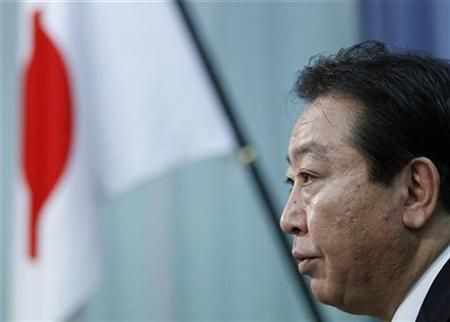China Worried About New Japanese PM Noda

The newly elected Prime Minister of Japan, Yoshihiko Noda, is raising concerns across the sea in China, Japan’s largest trading partner (and traditional enemy).
Associated Press reported that Chinese media have hyped up comments Noda has made in support of a shrine in Tokyo that honors Japanese soldiers killed in World War II, including war criminals.
The English language Chinese daily Global Times newspaper described Noda as a “hawk.”
The state-run Xinhua newspaper demanded that Noda not pay a visit to the military shrine in Yasukuni and to respect China’s “core interests.”
Noda, who replaced Naoto Kan after the latter was widely criticized for his handling of the tsunami-earthquake-nuclear disaster, is a former finance minister and will probably focus more on re-energizing Japan’s stalled economy, rather than challenging China.
Koichi Nakano, political science professor at Sophia University in Tokyo, told AP that Noda is likely to tone down any strident language regarding Japan’s imperial past.
[Noda] has no interest in complicating his situation by creating an acrimonious atmosphere when he needs to cooperate with Asian nations to get out of Japan's economic quagmire, he said.
Jeff Kingston, director of Asian studies at Temple University's Tokyo campus, told AP: Noda has to be more careful in how he addresses Japan shared history with Asia. I don't think that this is a huge blunder that's going to undermine ties but I think that he needs to be very careful from now on. Clearly Japan's economic future is closely tied to China's rise and it's not helpful for the positive economic relationship to held hostage to history.
David Rea, the Japan Economist at Capital Economics in London, is skeptical that Noda can do much to reinvigorate Japan’s stagnant economy, much less survive politically.
“[Noda] is a fiscal conservative, is keen to get Japan’s public finances back on a sustainable path and has advocated increasing the sales tax to reduce the deficit,” he said.
“From a business perspective, he has also vowed to make combating the impact of the strong yen a priority. Nonetheless, he will have his work cut out just staying in the job.”
Rea noted that Japan has now had six prime ministers in as many years.
“Not only must Noda unite a fractious ruling [DPJ] party, but he must soothe relations with an opposition that controls the upper house of the Diet and is able and willing to frustrate the government’s policy plans,” Rea said.
“It is important that addressing the high budget deficit and onerous level of public debt remain on the agenda. Alongside this, issues of how to rebuild the areas devastated by the… earthquake, the future direction of energy policy, and helping business deal with the impact of a strong currency are also important issues.”
© Copyright IBTimes 2025. All rights reserved.





















